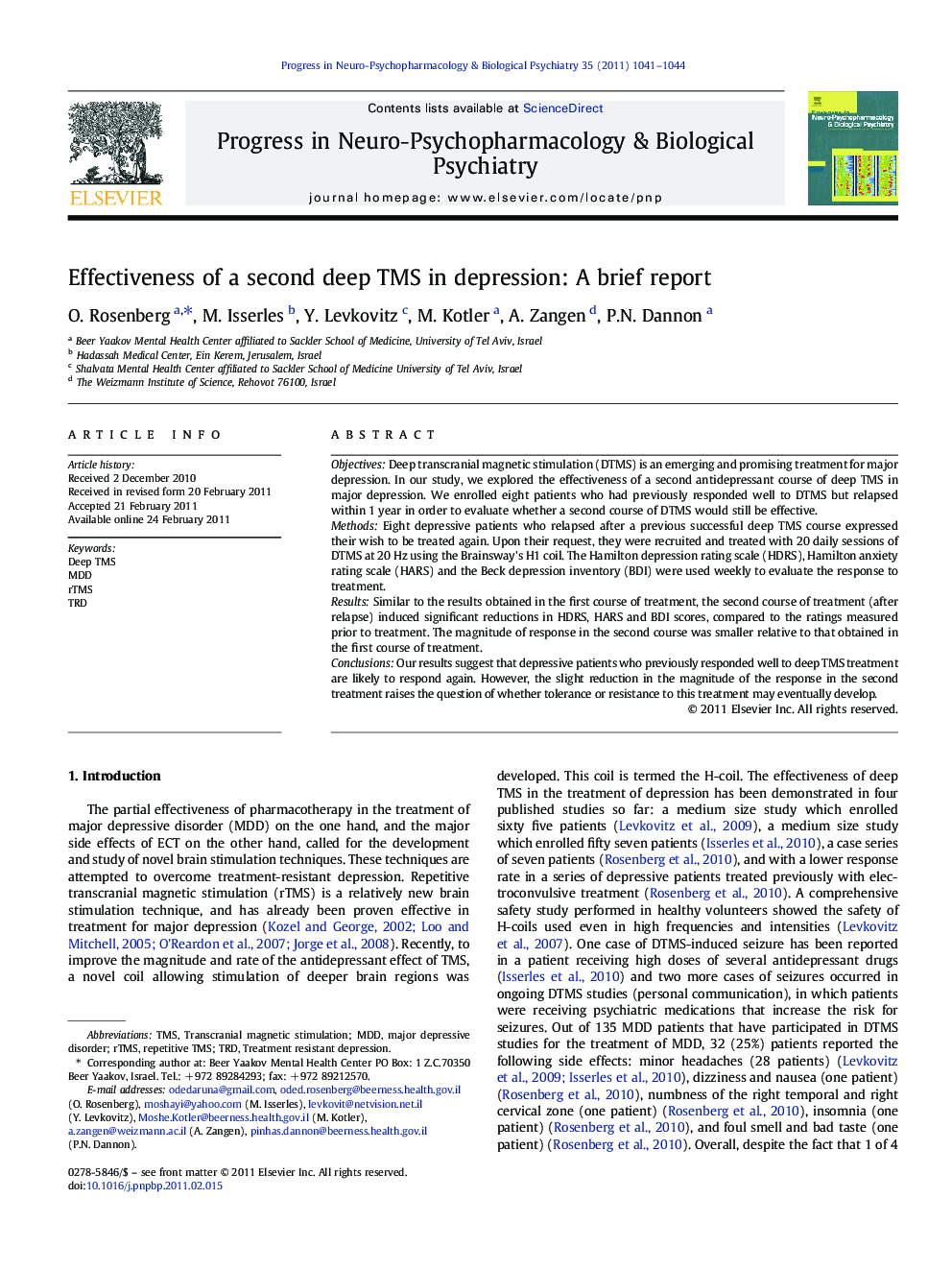| Article ID | Journal | Published Year | Pages | File Type |
|---|---|---|---|---|
| 2565244 | Progress in Neuro-Psychopharmacology and Biological Psychiatry | 2011 | 4 Pages |
ObjectivesDeep transcranial magnetic stimulation (DTMS) is an emerging and promising treatment for major depression. In our study, we explored the effectiveness of a second antidepressant course of deep TMS in major depression. We enrolled eight patients who had previously responded well to DTMS but relapsed within 1 year in order to evaluate whether a second course of DTMS would still be effective.MethodsEight depressive patients who relapsed after a previous successful deep TMS course expressed their wish to be treated again. Upon their request, they were recruited and treated with 20 daily sessions of DTMS at 20 Hz using the Brainsway's H1 coil. The Hamilton depression rating scale (HDRS), Hamilton anxiety rating scale (HARS) and the Beck depression inventory (BDI) were used weekly to evaluate the response to treatment.ResultsSimilar to the results obtained in the first course of treatment, the second course of treatment (after relapse) induced significant reductions in HDRS, HARS and BDI scores, compared to the ratings measured prior to treatment. The magnitude of response in the second course was smaller relative to that obtained in the first course of treatment.ConclusionsOur results suggest that depressive patients who previously responded well to deep TMS treatment are likely to respond again. However, the slight reduction in the magnitude of the response in the second treatment raises the question of whether tolerance or resistance to this treatment may eventually develop.
Research highlights► A second course of deep TMS in major depression relapse is a feasible option. ► Deep transcranial magnetic stimulation is an emerging and promising treatment. ► Deep TMS was shown to be an effective treatment for major depression.
